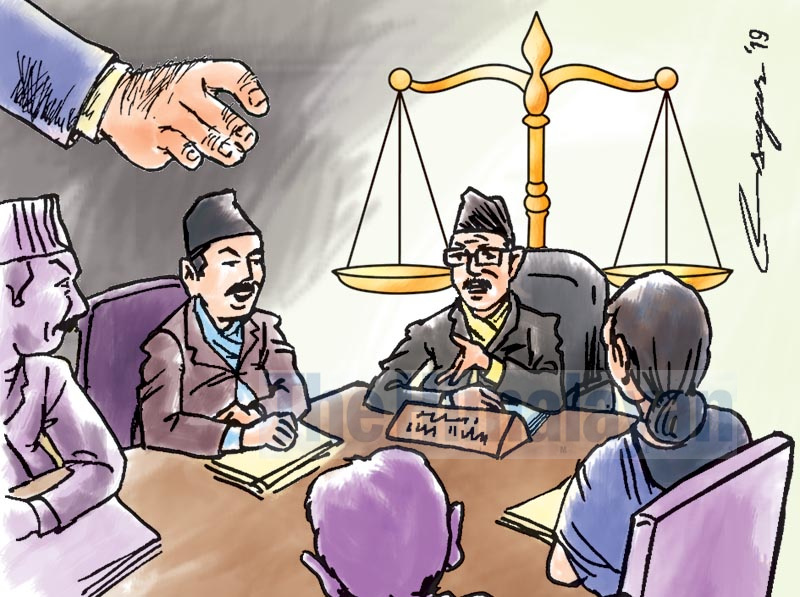Recommendation committee fails to pick candidates leaving TJ bodies in the lurch
- Government and parties are deliberately delaying the process as per their strategy of delay, dilute and deny justice
Kathmandu, November 8
It’s been seven months since the formation of the recommendation committee to pick new members of two transitional justice bodies, but the independent panel has not been able to take a decision.
The committee has so far collected 57 applications for the post of members and chairpersons of the Truth and Reconciliation Commission and the Commission on Investigation of Enforced Disappearances. That’s just what it has done over the past seven months, besides calling and postponing meetings.
The committee was supposed to meet yesterday too, but it was postponed by its Chairperson Om Prakash Misha, according to the panel’s Spokesperson Sharmila Karki. Karki said they would hold a meeting in next two or three days, to give final shape to the list of aspiring candidates, for publication.
This is not the first time the committee has said so. Stakeholders say the independent committee is doing nothing, but awaiting political signal for appointments in the commissions that have remained vacant since their members retired in April.
Political parties had on August 21 reached an understanding whereby the CIEDP would have the same old team, while the TRC would be led by former attorney general Raman Shrestha. Conflict victims and the National Human Rights Commission, which is represented in committee, are opposed to the idea of repeating the members. The victims have warned that they would withdraw all of their 63,000 complaints if old members are brought back.
The government on September 16 presented a modality for holding broad-based consultations in all seven provinces and Kathmandu, to gather inputs for amendment to the Enforced Disappearances Inquiry, Truth and Reconciliation Commission Act-2014.
Conflict victims have also demanded that the processes appointing TRC, CIEDP members and act amendment should be taken ahead simultaneously. Both these processes have been halted thanks to the government and political parties according least priority to these issues.
Suman Adhikari, former chairperson of Conflict Victims Common Platform, said the government and parties were deliberately delaying the process under their strategy of ‘delay, dilute and deny justice’. He also said the victims had nothing to expect for the ‘rubber-stamp’ recommendation committee.
“We are also wondering what the government and parties are up to,” he said.






